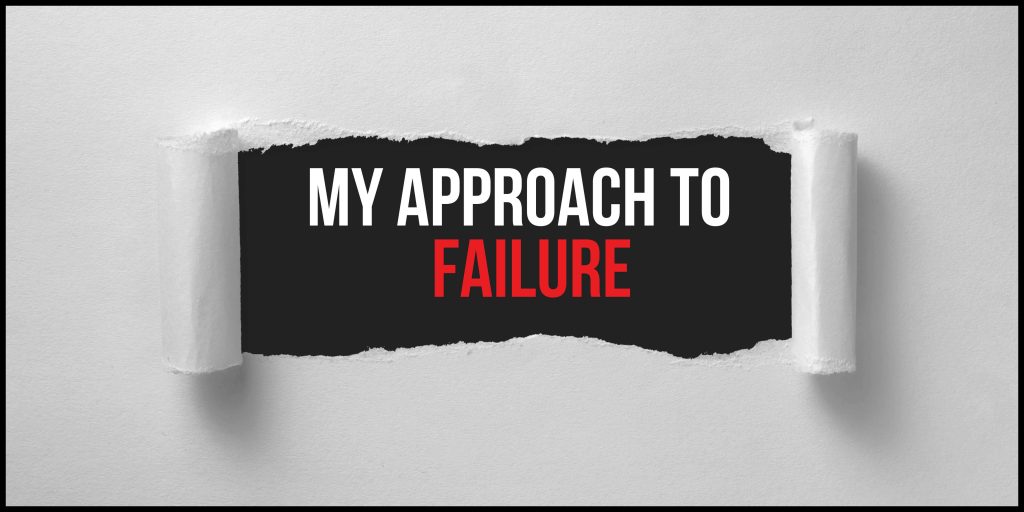In today’s startup culture the ideas around being open to failure, failing fast, and learning from failure have, in my opinion, been overly romanticized. The question most people are not asking themselves in this amplification of failure is ‘how much am I willing to risk?’ This is an important question because in real life, failure has consequences. On one side of the spectrum there are financial repercussions and on the other end there can be mental health and relational repercussions.
I am quite risk averse and to me the conversation on failure is directly correlated to risk. I think with my head more than I feel with my heart therefore I endeavor to put myself in a place where failure hurts less. I agree with the general principals around the importance and the value of failing but in my life it didn’t make complete sense until I made a few changes to the prevailing narrative around failure.

The changes that worked for me involved figuring out how I could lower the risk in high-stakes scenarios. Lowering risk is a simple formula. If you want to increase your appetite and openness to risk you have to increase the rewards and decrease the losses. By increasing the high end and decreasing the low end you are now operating from an equation where you are positioned to gain more than you lose. One of the ways this translates in my life is I don’t have any significant financial outlays to anyone. So, if a business deal does not go my way the impact is negligible. This puts me in a position of power because if I have nothing to lose I am now in a great position for negotiation.
Here’s an example: If I have house payments, car payments, watch payments etc, that amount to 10,000 Euro a month and have ONE speaking invitation next month offering to pay me 12,000 Euros; when they ask me if I will come to their event I actually don’t have a choice because I need the 10k. BUT if I’ve lived within my means as much as possible, which is easier said than done for some, I now am in a position to negotiate and offer more value. When a client says we can afford to offer you 12K I can counter the offer and let them know that I have additional value and then list all the other benefits I can add to their event and bump the offer up to 20K. If they say no, it isn’t a problem because we are still at 12k and that’s a win. If they say yes GREAT..we’ve now got 20k!

The goal is to be in a position where you can increase the reward. Getting to this place in your life involves a process of freeing yourself from debt and any other unnecessary obligations. Cultivating a mindset whose default line of thinking is how to increase the potential of a win. This will not only soften failures’ potential negative side but also make you more open to the possibility of failing.
Your appetite for risk will determine how big of a bet you are willing to make. Placing a bet is placing a gamble and you should never gamble something you can’t afford to lose. With this philosophy of increasing the reward you can be comfortable embracing the option of “failure” because you have strategically protected the downside effects.
If you are currently struggling with a difficult decision in your business send me a message today. I would love to help you see your situation with new eyes.
Dan Ram ignites the stage as an in-person event and virtual event MC/ Moderator & Speaker at over 100 events a year. He has shared the stage with international luminaries including President Barack Obama, Sir Richard Branson, Reid Hoffman, Nico Rosberg, and Grammy-winning artists and celebrities. He has also been recognized as a Top 40 under 40 leader 2020 as well as a Top 100 Yale Alumni in Technology 2021. Level up your communication skills through his course and mastermind “Speaking Success”. His passion is to inspire people with his motto ‘Start Now Start Simple’ in building a future we all want to live in.


Definitely a perspective I’ve never heard before and one that resonates with how I’m built. If we are “open to failure” that doesn’t mean we have to be uninvolved in the details surrounding a future outcoming. We CAN figure out how to increase the high end and lower the risks!!